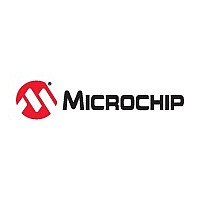PIC16F716-I/SS Microchip Technology Inc., PIC16F716-I/SS Datasheet - Page 52

PIC16F716-I/SS
Manufacturer Part Number
PIC16F716-I/SS
Description
MCU, 8-Bit, 2KW Flash, 128 RAM, 13 I/O, SSOP-20
Manufacturer
Microchip Technology Inc.
Datasheet
1.PIC16F716-ISS.pdf
(136 pages)
Specifications of PIC16F716-I/SS
A/d Inputs
4-Channel, 8-Bit
Cpu Speed
5 MIPS
Eeprom Memory
0 Bytes
Input Output
13
Memory Type
Flash
Number Of Bits
8
Package Type
20-pin SSOP
Programmable Memory
3.5K Bytes
Ram Size
128 Bytes
Speed
20 MHz
Timers
2-8-bit, 1-16-bit
Voltage, Range
2-5.5 V
Lead Free Status / Rohs Status
RoHS Compliant part
Electrostatic Device
Available stocks
Company
Part Number
Manufacturer
Quantity
Price
Part Number:
PIC16F716-I/SS
Manufacturer:
MICROCHIP/微芯
Quantity:
20 000
PIC16F716
8.2
In Compare mode, the 16-bit CCPR1 register value is
constantly compared against the TMR1 register pair
value. When a match occurs, the CCP1 module may:
• Toggle the CCP1 output.
• Set the CCP1 output.
• Clear the CCP1 output.
• Generate a Special Event Trigger.
• Generate a Software Interrupt.
The action on the pin is based on the value of the
CCP1M<3:0> control bits of the CCP1CON register.
All Compare modes can generate an interrupt.
FIGURE 8-2:
8.2.1
The user must configure the CCP1 pin as an output by
clearing the associated TRIS bit.
DS41206B-page 50
Note:
CCP1
Pin
Special Event Trigger will:
• Clear TMR1H and TMR1L registers.
• NOT set interrupt flag bit TMR1IF of the PIR1 register.
• Set the GO/DONE bit to start the ADC conversion.
Output Enable
TRIS
Compare Mode
CCP1 PIN CONFIGURATION
Clearing the CCP1CON register will force
the CCP1 compare output latch to the
default low level. This is not the PORT I/O
data latch.
Q
Special Event Trigger
CCP1CON<3:0>
R
S
Mode Select
Output
COMPARE MODE
OPERATION BLOCK
DIAGRAM
Logic
Set CCP1IF Interrupt Flag
4
(PIR1)
Match
CCPR1H CCPR1L
TMR1H
Comparator
TMR1L
8.2.2
In Compare mode, Timer1 must be running in either
Timer mode or Synchronized Counter mode. The
compare operation may not work in Asynchronous
Counter mode.
8.2.3
When Generate Software Interrupt mode is chosen
(CCP1M<3:0> = 1010), the CCP1 module does not
assert control of the CCP1 pin (see the CCP1CON
register).
8.2.4
When Special Event Trigger mode is chosen
(CCP1M<3:0> = 1011), the CCP1 module does the
following:
• Resets Timer1
• Starts an ADC conversion if ADC is enabled
The CCP1 module does not assert control of the CCP1
pin in this mode (see the CCP1CON register).
The Special Event Trigger output of the CCP occurs
immediately upon a match between the TMR1H,
TMR1L register pair and the CCPR1H, CCPR1L
register pair. The TMR1H, TMR1L register pair is not
reset until the next rising edge of the Timer1 clock. This
allows the CCPR1H, CCPR1L register pair to
effectively provide a 16-bit programmable period
register for Timer1.
Note 1: The Special Event Trigger from the CCP
2: Removing
TIMER1 MODE SELECTION
SOFTWARE INTERRUPT MODE
SPECIAL EVENT TRIGGER
module does not set interrupt flag bit
TMRxIF of the PIR1 register.
changing the contents of the CCPR1H
and CCPR1L register pair, between the
clock edge that generates the Special
Event Trigger and the clock edge that
generates the Timer1 Reset, will preclude
the Reset from occurring.
© 2007 Microchip Technology Inc.
the
match
condition
by






















